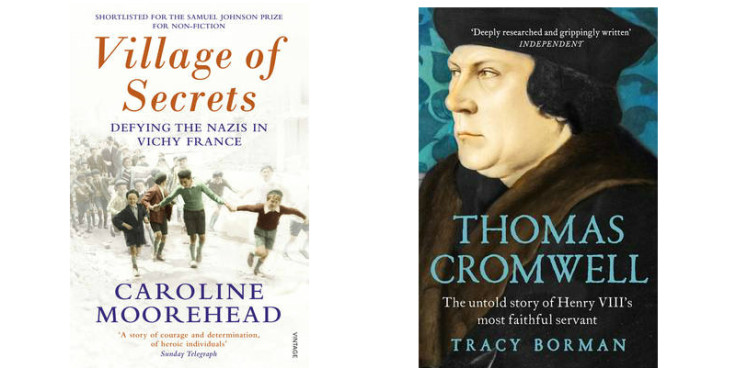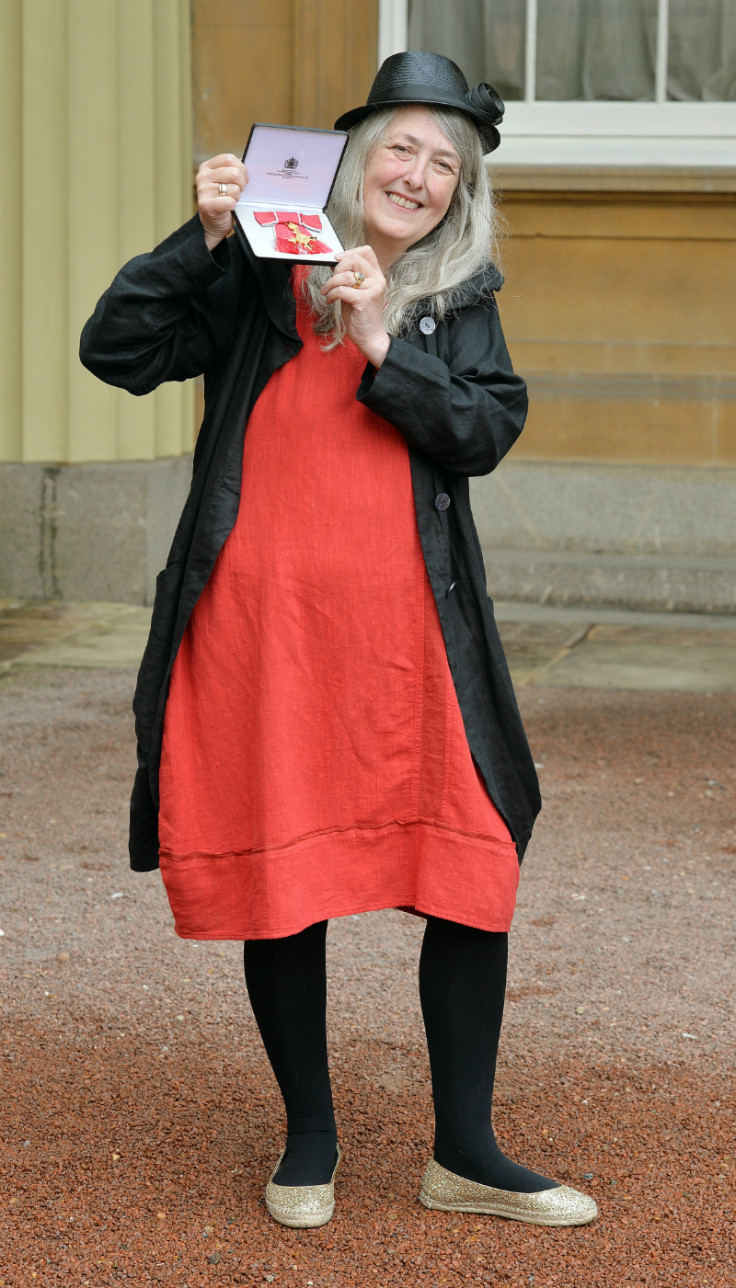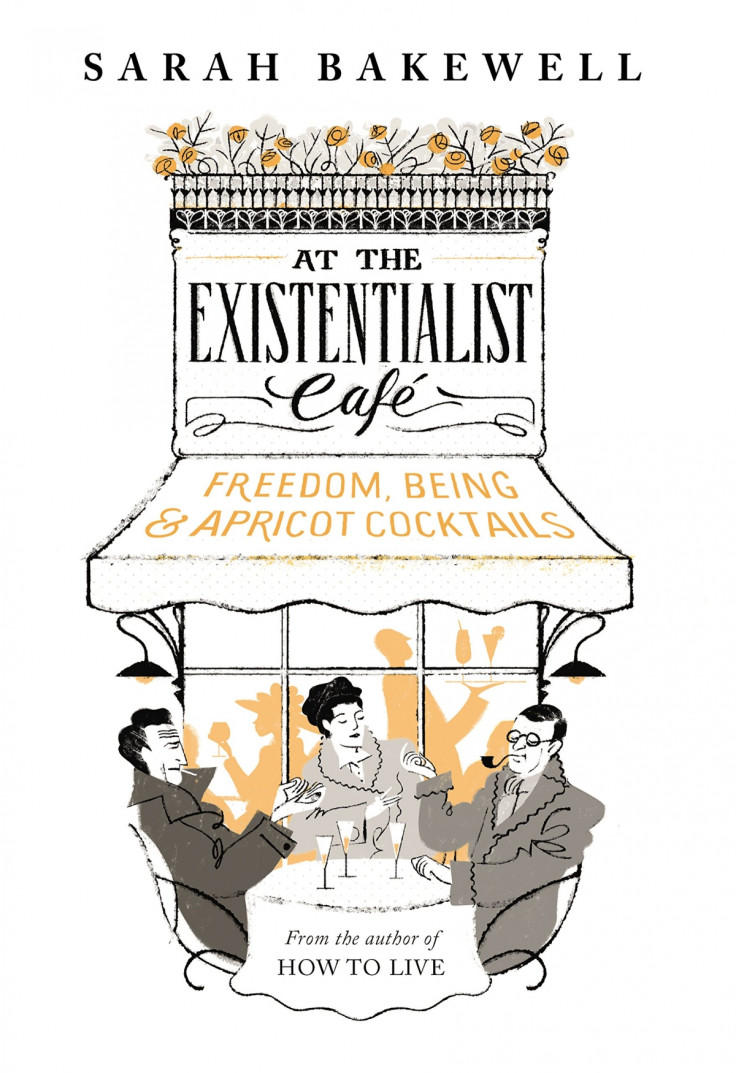Women and history: Why are female historical writers a minority of the best-selling authors?
History is written by the victors, it is said. But the aphorism needs updating, because a more basic reality is that most best-selling history books are authored by men, victors or vanquished regardless. A survey by US online magazine Slate has thrown up dramatic findings. Slate surveyed 614 popular history books from 80 publishers. More than three-quarters (76%) had male authors.
The picture is similar in the UK. The issue is particularly acute in the areas of military and political history. According to data collated for IB Times UK by industry publication The Bookseller, only one of last year's top 20 best-selling military history books had a female author - Caroline Moorehead's excellent Village of Secrets: Defying the Nazis in Vichy France (Vintage). For the top 10 historical and political biographies, meanwhile, the results were barely better, with just two volumes by female writers. They include Tracey Borman's stand-out biography of Thomas Cromwell (Hodder & Stoughton).

This under-representation appears to be the legacy of wider historical marginalisation of women. Before the 20th century - albeit with notable exceptions - there were few female political or military leaders. The issue of perceived "ownership" (or, more specifically, non-ownership) seems to have deterred female historians from tackling military and political subjects. They have focussed, instead, upon famous women and on domestic historical spheres.
"There's a set of factors that end up being self-reinforcing," says Imogen Robertson, chair of the Historical Writers Association (HWA). "There is the unconscious prejudice that men write about war and women write about queens." Robertson does point out that the prejudices can work both ways. "Men can be just as subject to stereotyping. So a man might be expected to write about the mechanism of a machine gun, just as a woman might be expected to cover the human damage it causes."

Janina Ramirez agrees with this analysis, although she has avoided this stereotyping in her own writing. "I didn't focus on the traditional areas for women when I wrote my book on saints," she says. Ramirez is the author of The Private Lives of the Saints (WH Allen), which offers a radical perspective upon Anglo-Saxon Britain. "It's a period for which historical accounts deal almost entirely with the upper classes and aristocracy. But saints are a unique group who are drawn from right across the population: men, women, ethnic minorities - and yet they were some of the most influential and powerful people."
The role of universities is relevant to the under-representation problem also, because many history books are authored by academics. Women were admitted to UK universities from only the late nineteenth century and the HWA's Robertson believes history faculties have still not reached full equality. "Like tends to breed like," she says. "Academics tend to look for people like themselves when they are recruiting. It takes a long time to break these barriers down." This means there is a smaller pool of senior female academics for publishers to approach when commissioning popular history books.
Ramirez lectures at Oxford University. She believes history departments have become more evenly balanced, but that a bigger problem is publishers favouring male authors. "There are plenty of fantastic female academics out there, but they're not getting the opportunities. If there's a choice between men and women covering the big historical topics, it tends to be the men who are chosen." She believes the solution must be a two stage process, with both the books industry and consumers needing to break out from their respective comfort zones: "Publishers have to take the risk and the buying public have to be bold."

Robertson sees scope for optimism. "The situation is improving, with writers like Mary Beard and Amanda Vickery achieving a high profile." Professor Beard's recent SPQR: A History of Ancient Rome (Profile), in particular, has won widespread plaudits and dominates current history best-seller lists. Robertson believes that continuing to air the issues will help with progress, especially with regards to changing the outlook of the book-buying public. "One of the biggest things that can improve the situation is for us to carry on talking about it."

And another - of course - is a continuing supply of high quality history books from female historians. Among the latest is At The Existentialist Cafe, by Sarah Bakewell (Chatto). Bakewell has tackled the history of philosophy, traditionally also the preserve of male writers. She supplies insights into Jean-Paul Sartre and Martin Heidegger, philosophers whose profoundly flawed personal lives seriously undermined their respective brands of existentialism.
Elsewhere, over in the world of high society, Juliet Nicolson's A House Full of Daughters (Chatto) looks back through seven generations of her female forebears. They include, most notably, Vita Sackville-West, the poet, novelist and Bloomsburyite who is chiefly remembered for her affair with Virginia Woolf and for the world-famous gardens she created at Sissinghurst Castle, now owned by the National Trust.
© Copyright IBTimes 2025. All rights reserved.





















